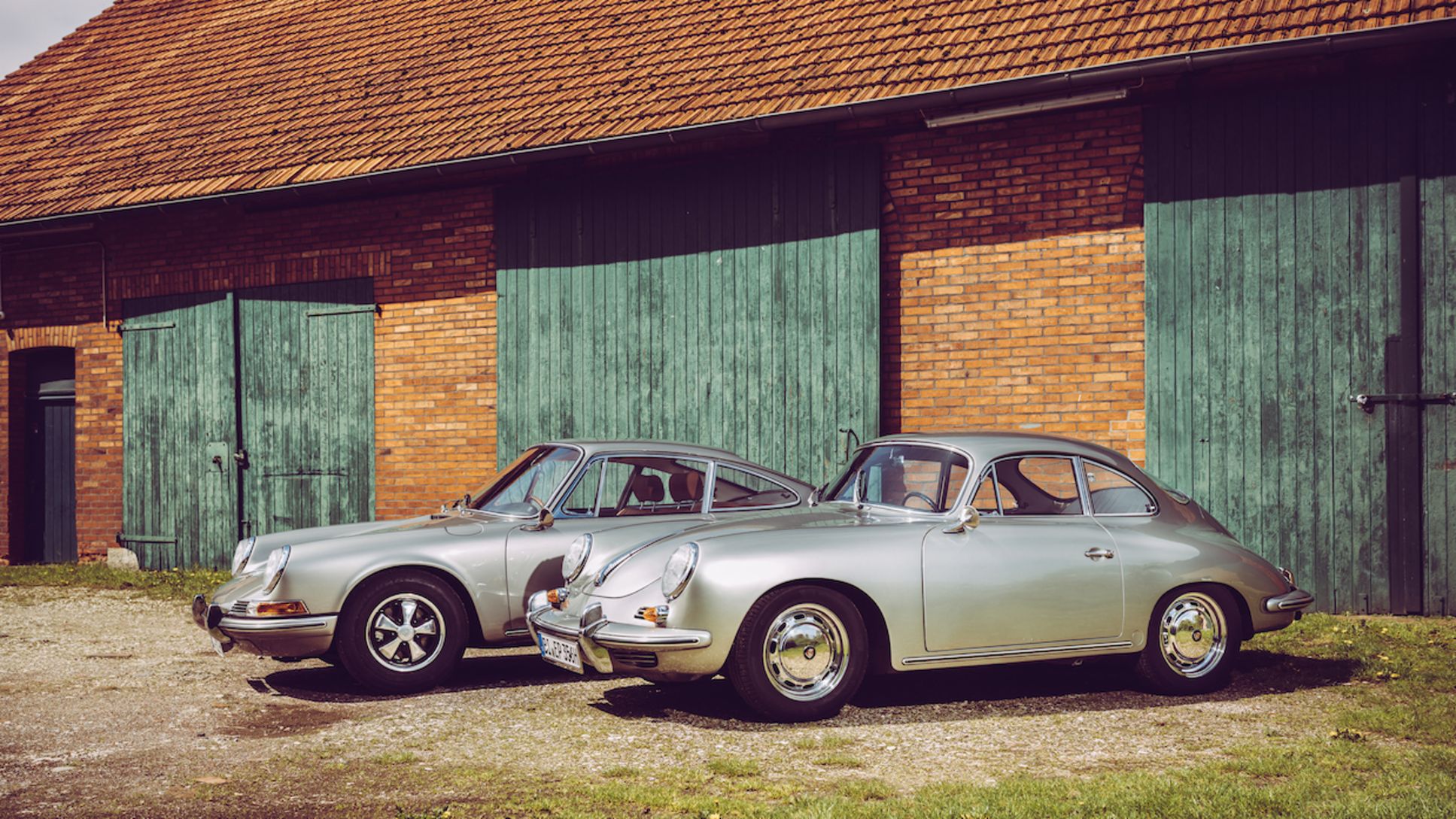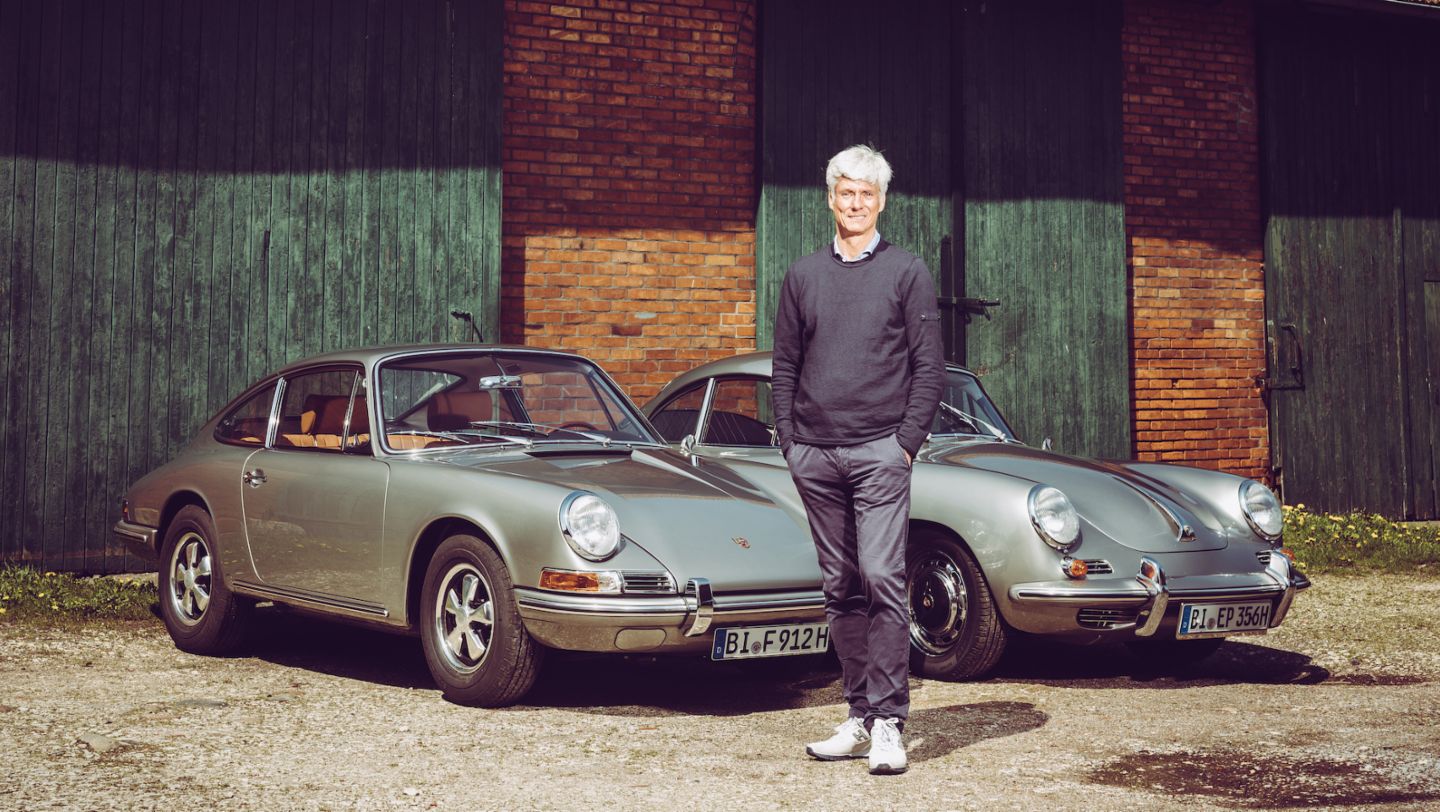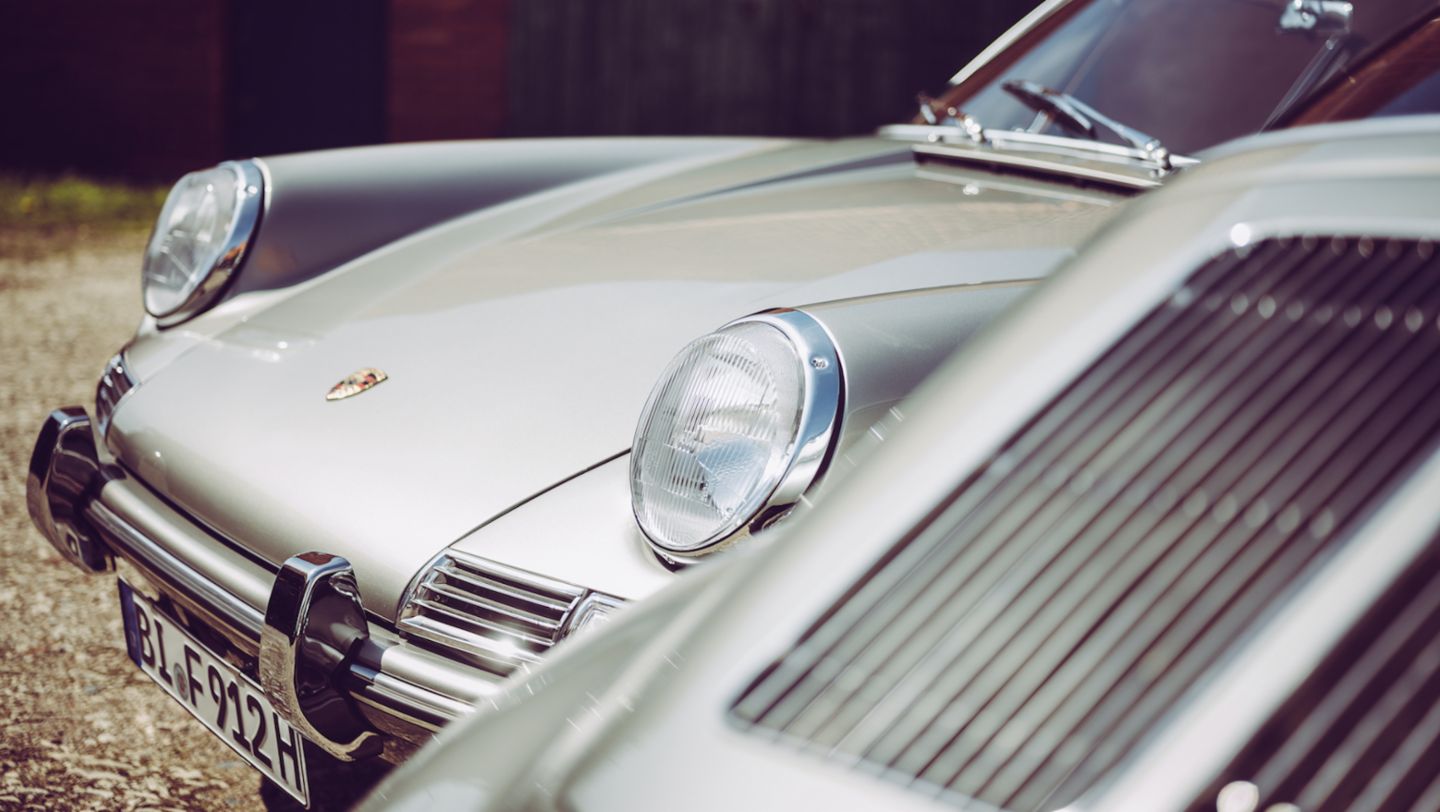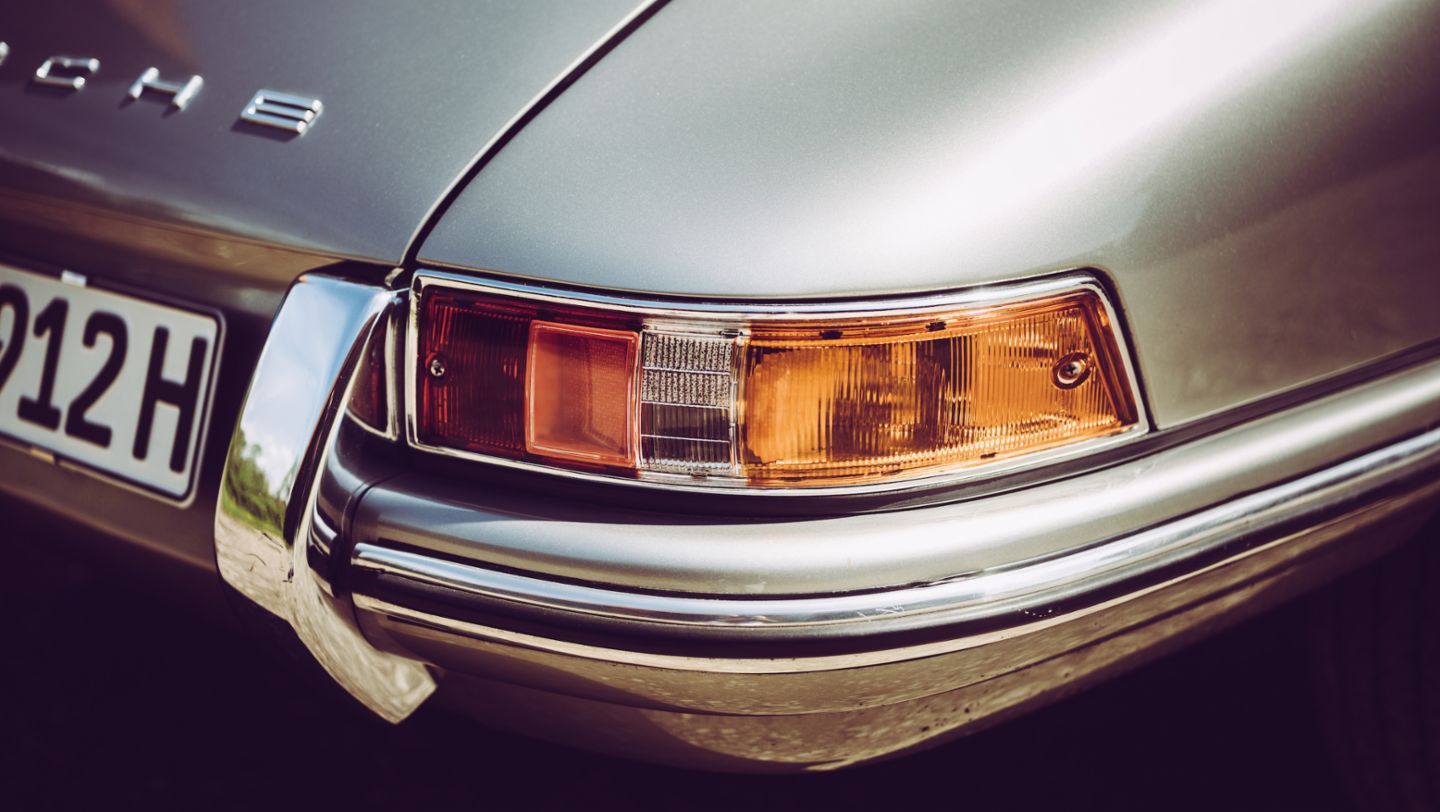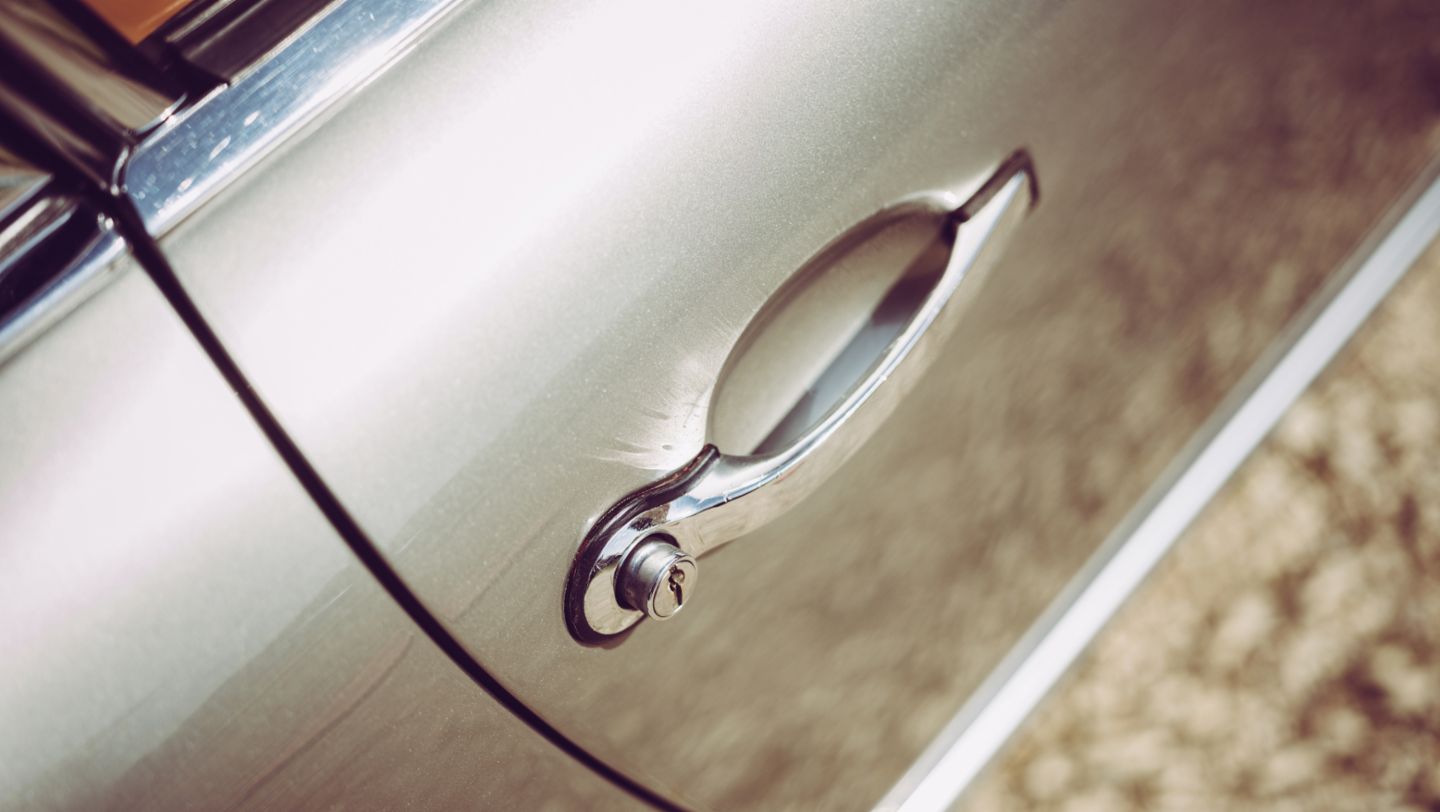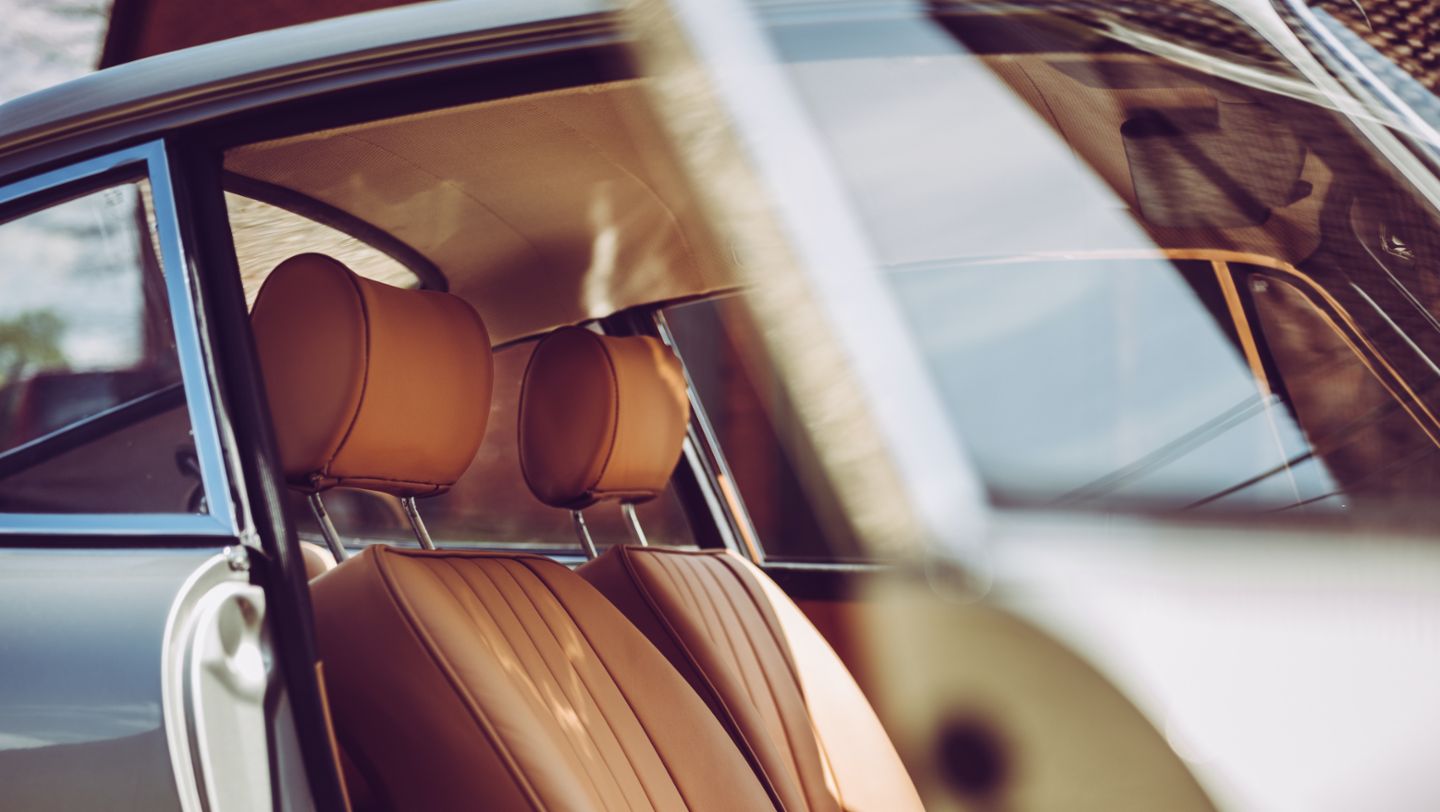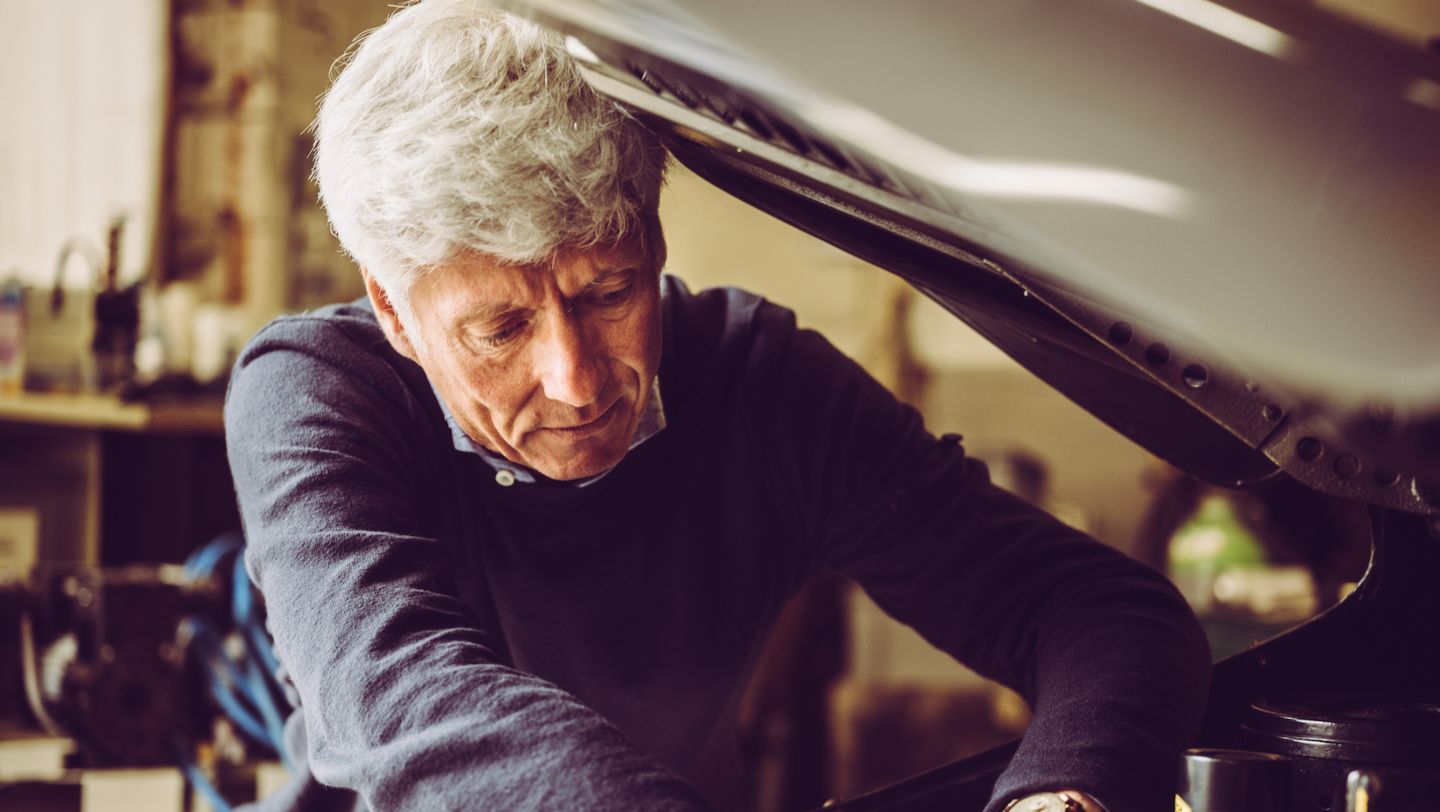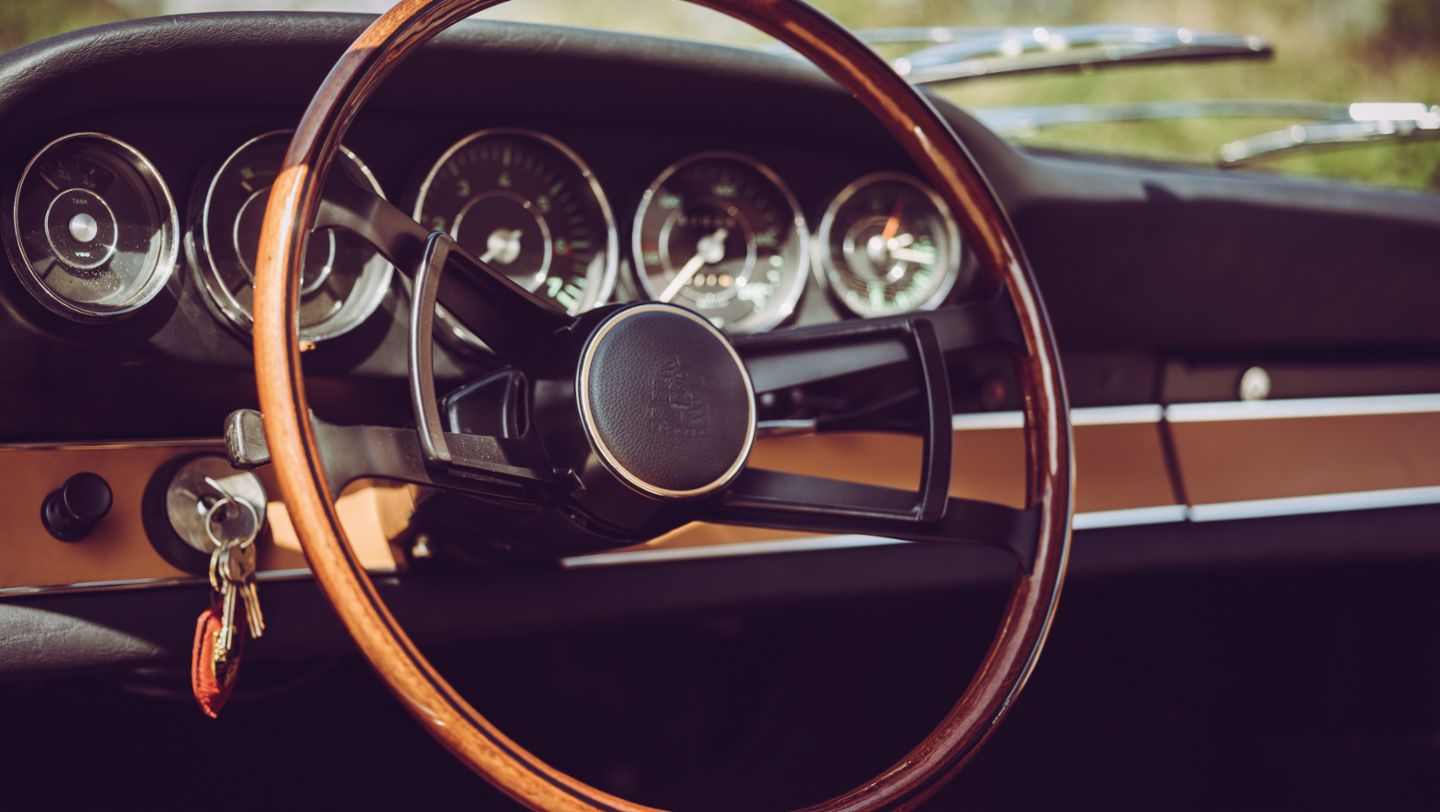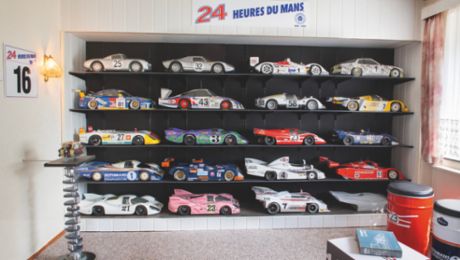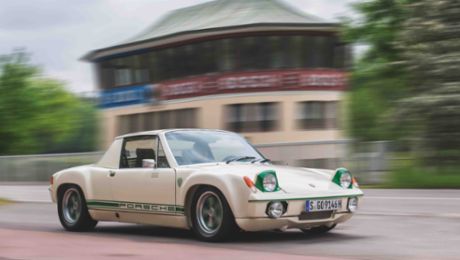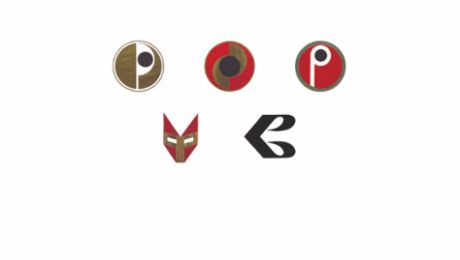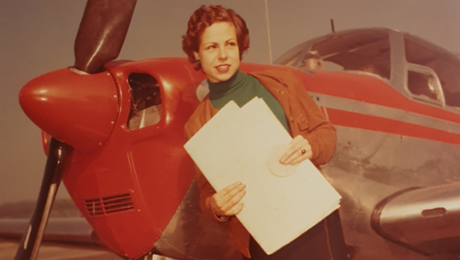But was it okay for a second Porsche to resemble its predecessor? This was one of the key questions when experts such as Erwin Komenda were thinking about Porsche styling in the mid-century era, just before the Space Age lifted off. While the engine designers soon realised that an ‘old-fashioned’ six-cylinder engine with a central camshaft would lead them astray, it took a while for them to move away from designs that, although they couldn’t deny their 901 genes, still seemed somewhat clunky.
It was the decision to make a more or less pure two-seater with two foldaway seats in the rear that showed them the way forward. It was now possible for the rear roofline to drop in a straight line – a design characteristic that was rewarded with sales success all over the world during that period. In his memoirs, Ferry Porsche talks of a ‘mandate’ that he issued upon noticing that the designs for a successor to the 356 increasingly lacked the subtlety of that car.
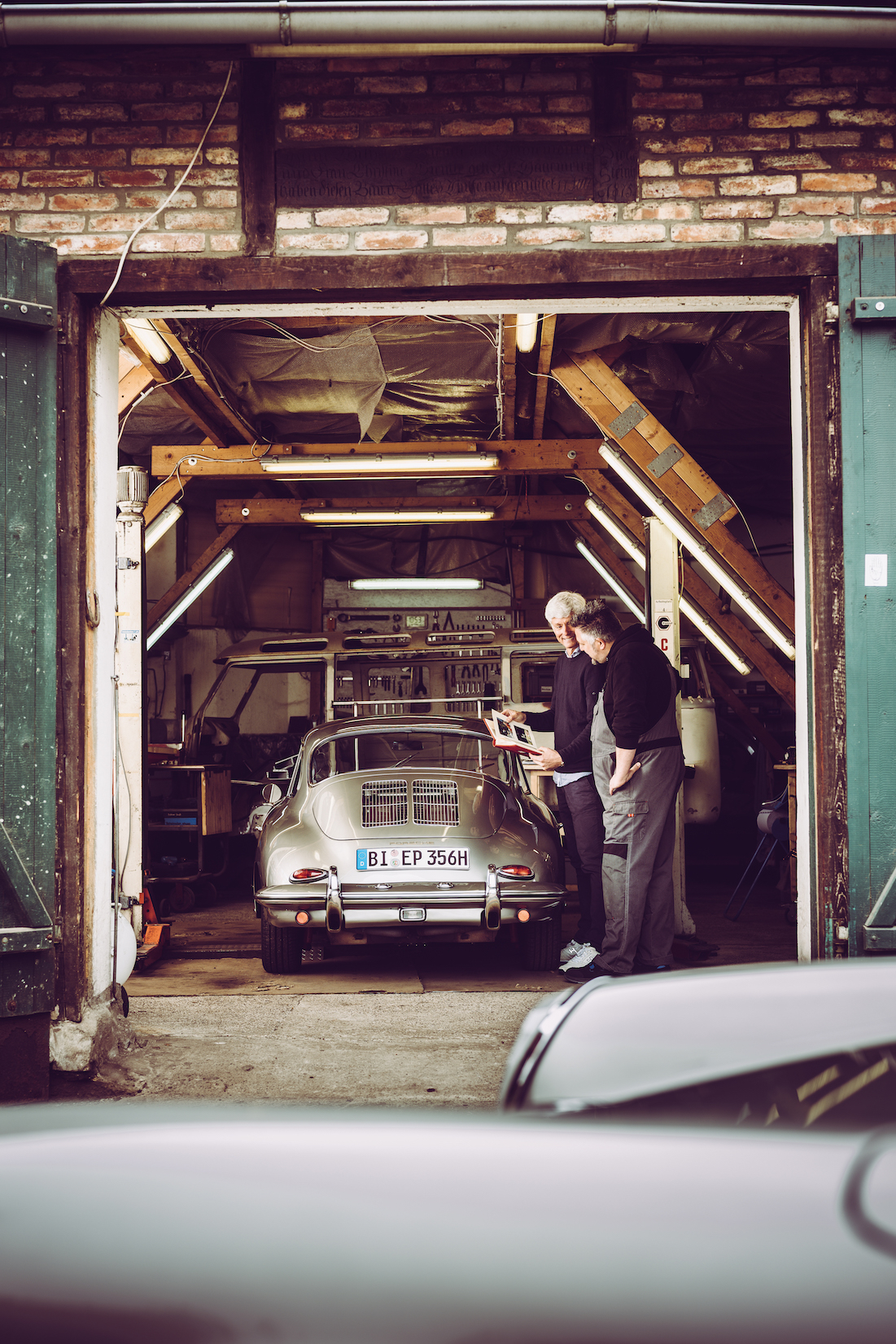
The founder of the Porsche brand entrusted his son with the task of hitting the correct note in the design. F. A. soon noticed: “It’s easier to work for other companies than for your own.”
In the end, after many variants, the Type 901 was created, which remains an icon to this day. Give a child a piece of paper and ask it to draw a sports car. Very often the result will be a Porsche. Everything could have turned out really well with this new car, but there were two problems. The increase in price from the Porsche 356 1600 SC Coupé (16,450 Deutschmarks) to the 911 was pretty steep: an additional 5,450 Deutschmark (to a total 21,900 Deutschmarks). A link in the chain connecting the old world and the new was missing. One reason was that some cast-iron Porsche fans just hated the six-cylinder engine and swore by the original flat four.
This is where it begins, the story of Peter Ellinghorst and his silver love affair
This is where the Porsche 912 came into play. It featured the design and technology of the new Porsche, but was equipped with the much-loved four-cylinder engine from its predecessor – all for 16,250 Deutschmarks in 1965. It was a bridge between two models, one with the charisma to beguile those who had fallen in love with the Porsche 356. This is where it begins, the story of Peter Ellinghorst and his silver love affair with two similar-yet-different Porsche brothers.
“Like a jet on wheels” it says in the photo album that begins with Peter’s birth and ends with a photo of father, son and the 356. This was the day on which he presented the restored car to his parents. “My mother gave me the album when I passed my exam. My parents knew how much I had worked over the holidays to make my dream come true: to buy a Porsche 356,” says Peter. I ended up with a C in need of restoration. The money for a professional restoration (by the standards of the time) had been earmarked when he signed the much longed-for purchase contract on 22 May 1991.
That slim 20-year-old is now an experienced CEO in the prime of life. The 356 served as his wedding car and is a beloved member of the family. The story could easily end here: and they all lived happily ever after. But sometimes the desire for more emerges. For a long time, Peter had wanted another playmate to put next to his trusty 356, one that could do the same job as his first Porsche and handle the bigger mileages of a rally or a holiday.
Like an ornament: a Porsche 912
The search took him to the Netherlands, where a promising online advertisement for a Porsche 911 shrivelled in the real world to a pile of painted rust. But that wasn’t all: standing there among the garden furniture like an ornament was a crashed car that turned out to be a Porsche 912. And one that the dealer wanted to be rid of sooner rather than later ... The damage at the front right wasn’t pretty, and the rust was really bad. However, this US reimport (with one of the highly sought-after Californian black number plates) proved to be in good mechanical condition.
“The car was crashed ages ago in the US. Yet for it to have survived all this time, the underpinnings must have been okay,” Peter Ellinghorst surmised – and he was right.
The second important point was that, apart from some relatively insignificant repair work, the Porsche 912 was untouched: good chrome, good doors, original fittings, original roof lining and interior equipment, engine and gearbox with matching numbers. On the chassis realignment jig all the location points aligned perfectly, and the body wasn’t buckled. It was the perfect basis for a restoration, but it was also one that would require some work.
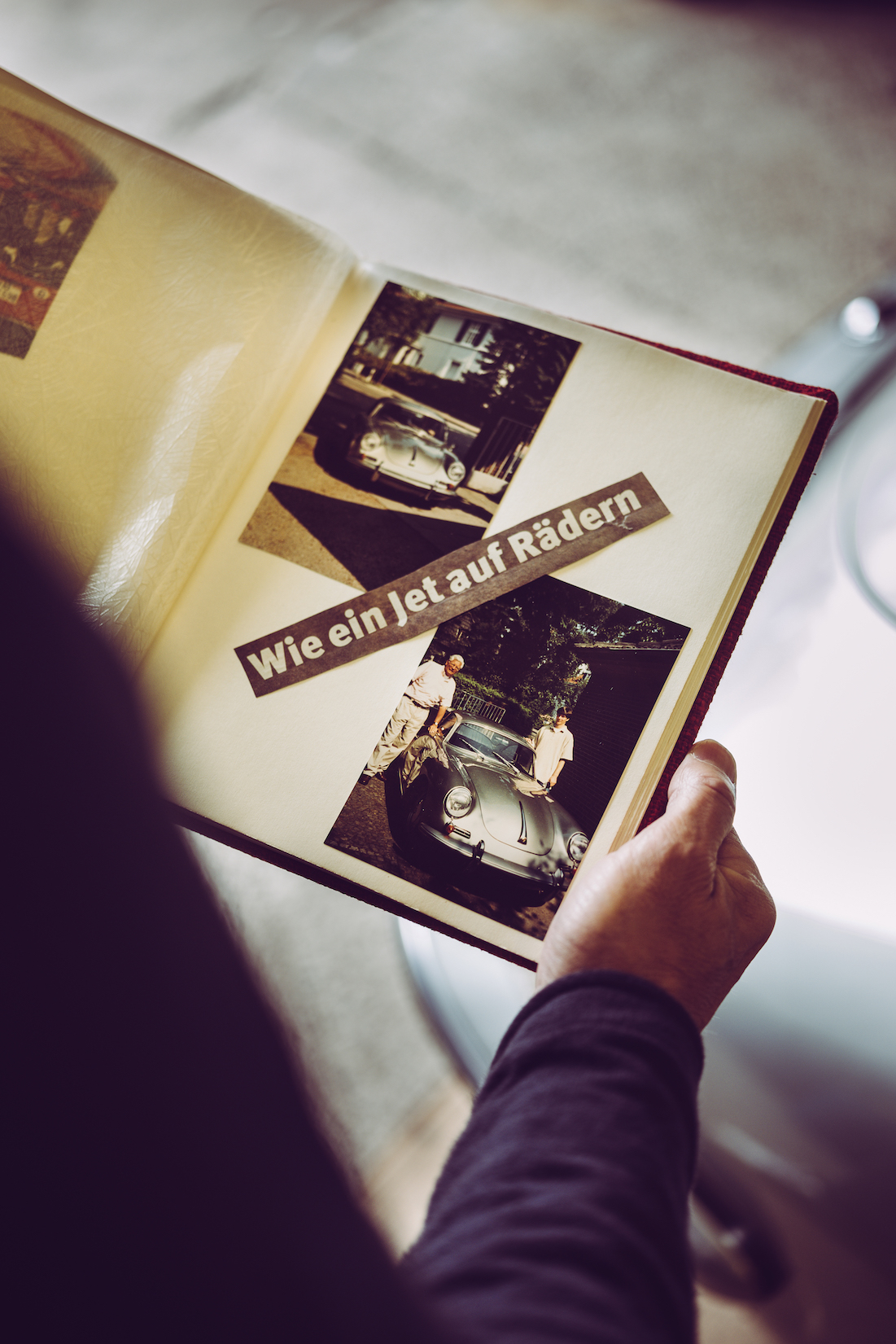
This Dutch-American was then moved to East Westphalia, where Peter was able to compare 912 and 356 C with fascination. “It’s astonishing how many things are the same,” he notes. The entire braking system, the rims (which Peter replaced with 14-inch first-generation Fuchs wheels), the exterior and interior mirrors, the engine and many minor parts were identical between the two cars. That’s how the idea to paint the two cars the same colour came about.
This man has ambitions!
In the case of the 356, Peter had, at the start of the 1990s, decided on a Jaguar colour, Satin Silver, which adorns many of the English classics. “It’s a little darker than the Porsche silver from back then, and even has a slightly green tint,” Peter explains. “If I had chosen an original paint, it wouldn’t really have done the chrome justice.” The colour’s too steely. So it was back to the colour card for a closer look. Peter took care of disassembly and reassembly with his friend Peter Neitzel in Neitzel’s barn. “Peter is a total pro and I’m in my second year of training,” says Peter 1 of Peter 2.
The latter’s smile says, modestly, that this is flattery. But when he’s talking about the Samba bus that he is currently welding from the bottom up, his eyes sparkling, it all becomes clear: this man has ambitions! And this is equally apparent from the Porsche 912, which – despite its bodywork, paintwork, interior upholstery, engine work and transmission overhaul being carried out in expert workshops – was finished off with impressive accuracy by the two Peters.
Two silver Porsches: a whole generation of design separates them, but they have many parts in common. And ultimately, they were built just two years apart (1964 and 1966).
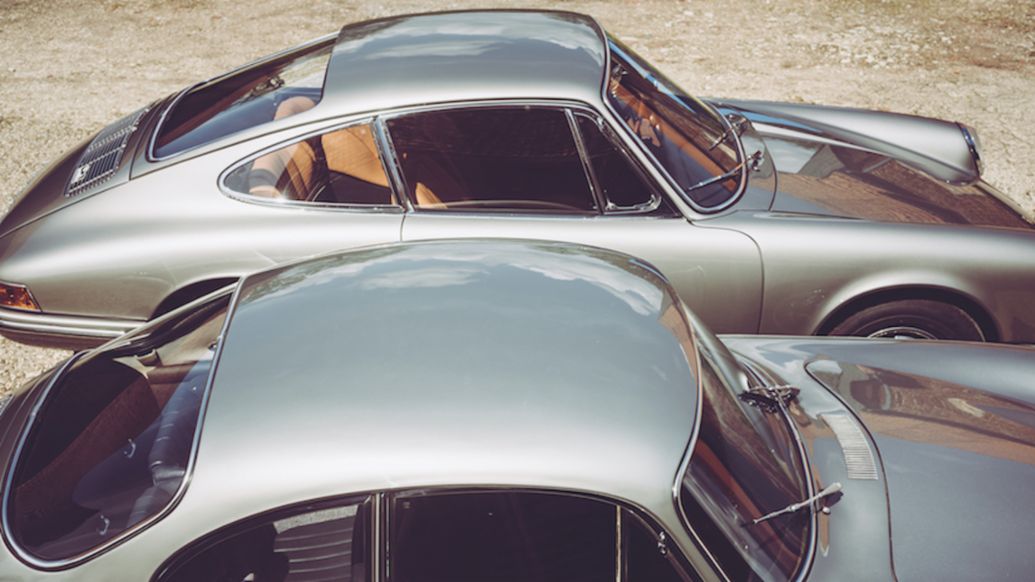
How do they compare when you drive them? Peter Ellinghorst tilts his head from side to side: “It’s kind of hard to say. Thirty years after its restoration, the 356 is no longer fresh. For this reason, the crisp precision of the 912 is a little deceptive. However, the 912 does have the better chassis and steering. And the 912 is livelier, obviously, what with its power output and the more modern five-speed gearbox. However, at the end of the day, less separates the two cars that you might believe. Seats and seating position, braking. That evocative sound. They’re both Porsches, totally unmistakably – and drivable every day.” Peter would like to restore the 356 with Peter again soon. And with greater precision than in the 1990s. Only then will he know how closely related the four-cylinder cars really are. It would certainly be an admirable experiment!
Technical data (as standard): Porsche 356 C Coupé
| Engine | Four-cylinder Boxer, air-cooled |
| Displacement | 1,582 cm³ |
| Compression | 8.5:1 |
| Mixture formation | Two Zenith 32 NDIX double downdraught carburettors |
| Maximum power | 75 PS (55 kW) at 5,200 rpm |
| Maximum torque | 123 Nm at 4,800 rpm |
| Gearbox | 4-speed |
| Unladen weight | 935 kg (as per DIN) |
| 0−100 km/h | 14 s |
| Top speed | 175 km/h |
| Build period | 1963 to 1965 |
| Units built | 16,668 |
Technical data (as standard): Porsche 912 (1600)
| Engine | Four-cylinder Boxer, air-cooled |
| Displacement | 1,582 cm³ |
| Compression | 9.3:1 |
| Mixture formation | Two Weber 40 IDF double downdraught carburettors (instead of Solex 40 PJJ) |
| Maximum power | 90 PS (66 kW) at 5,800 rpm |
| Maximum torque | 122 Nm at 3,500 rpm |
| Gearbox | 5-speed |
| Unladen weight | 995 kg (as per DIN) |
| 0−100 km/h | 13.5 s |
| Top speed | 183 km/h |
| Build period | 1965 to 1969 |
| Units built | 30,745 |
Info
Text first published in the magazine Porsche Klassik 28.
Author: Thorsten Elbrigmann
Photos: Thorsten Doerk
Copyright: All images, videos and audio files published in this article are subject to copyright. Reproduction in whole or in part is not permitted without the written consent of Dr. Ing. h.c. F. Porsche AG. Please contact newsroom@porsche.com for further information.
